Are you in the process of drafting an energy supply agreement and feeling overwhelmed by the details? Don't worry, you're not alone! Many individuals and businesses face the challenge of outlining their energy supply needs clearly and efficiently. Dive into our article for helpful tips and a comprehensive letter template that can ease your drafting process.
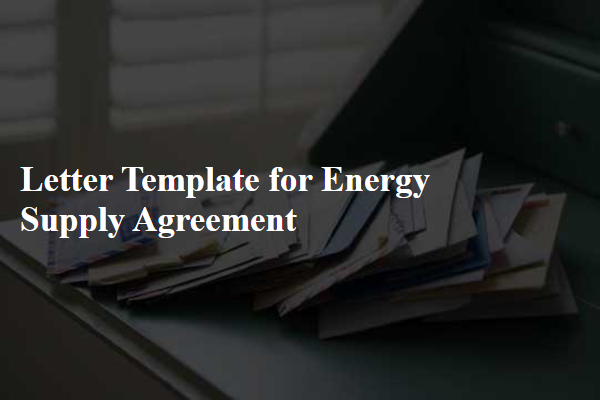
Parties involved and their roles
An energy supply agreement involves several key parties and their respective roles. The Supplier, typically a licensed energy provider such as a utility company or a renewable energy producer, delivers electricity or gas to the customer. The Customer, which could be a residential homeowner or a large industrial facility, receives energy services under agreed terms. The Regulator, usually a government agency, oversees compliance with energy regulations and ensures fair pricing. Additionally, Third-party Service Providers, such as energy management consultants or financial institutions, may be involved in facilitating the agreement, offering advice on usage optimization or financing options. Each party plays a crucial role in ensuring a reliable, efficient energy supply while adhering to legal frameworks and market conditions.
Contract duration and terms
An energy supply agreement typically outlines essential details including contract duration, which often specifies a fixed period such as one year or five years, depending on the needs of the parties involved. Terms may include pricing structures, with rates fixed or variable based on market conditions, as seen in agreements with energy suppliers like Constellation or Direct Energy. Additional clauses may cover renewal options, termination conditions, and penalties for early termination. Compliance with regulatory requirements set by entities like the Federal Energy Regulatory Commission is crucial to ensure lawful operation. The agreement should also specify delivery points, such as designated substations or user locations, which are vital for operational clarity.
Pricing structure and payment terms
The energy supply agreement outlines the pricing structure and payment terms that govern the purchase of electricity from the supplier to the consumer. The pricing structure may include variable rates based on market indices, fixed rates for the duration of the contract, or a tiered rate plan that adjusts based on consumption levels. Payment terms typically specify the billing cycle, due dates for payments, any late payment fees, and acceptable payment methods, such as bank transfers or credit card payments. Additionally, the agreement may address potential price escalations, conditions for reviewing rates, and provisions for adjustments related to regulatory changes or market fluctuations. Understanding these components is crucial for both parties to ensure transparency and compliance throughout the duration of the contract.
Delivery obligations and specifications
Energy supply agreements outline delivery obligations and specifications crucial for ensuring consistent energy provision. Suppliers must adhere to defined delivery schedules, often governed by regional regulations, such as those established by the Federal Energy Regulatory Commission (FERC) in the United States. Specifications include energy quality standards, such as voltage stability within +-5% of the nominal, and frequency maintenance at 60 Hz for electrical energy, ensuring compatibility with consumer infrastructure. Compliance with environmental regulations, for instance, the Clean Air Act, influences the source of energy, necessitating the use of renewable resources like solar and wind in a specified percentage, often around 20-30%. In addition, documentation must be maintained, including delivery receipts and meter readings, which are essential for accurate billing and compliance reporting to local authorities.
Dispute resolution mechanisms
Dispute resolution mechanisms in energy supply agreements play a crucial role in addressing conflicts arising from contractual obligations. Mediation processes, typically held in neutral locations such as conference centers, encourage amicable resolution between parties. Arbitration, governed by established bodies like the International Chamber of Commerce (ICC), provides a binding decision with confidentiality on disputes, ensuring protection of proprietary information. Specific timelines, such as a 30-day notice period for initiating disputes, are critical for maintaining contract integrity. Additionally, incorporation of escalation clauses allows for issues to be referred to senior management before formal proceedings, promoting prompt resolution and minimizing potential disruptions in energy supply chains. Clarity in these mechanisms ensures compliance with regulatory frameworks, such as those outlined by the Federal Energy Regulatory Commission (FERC).

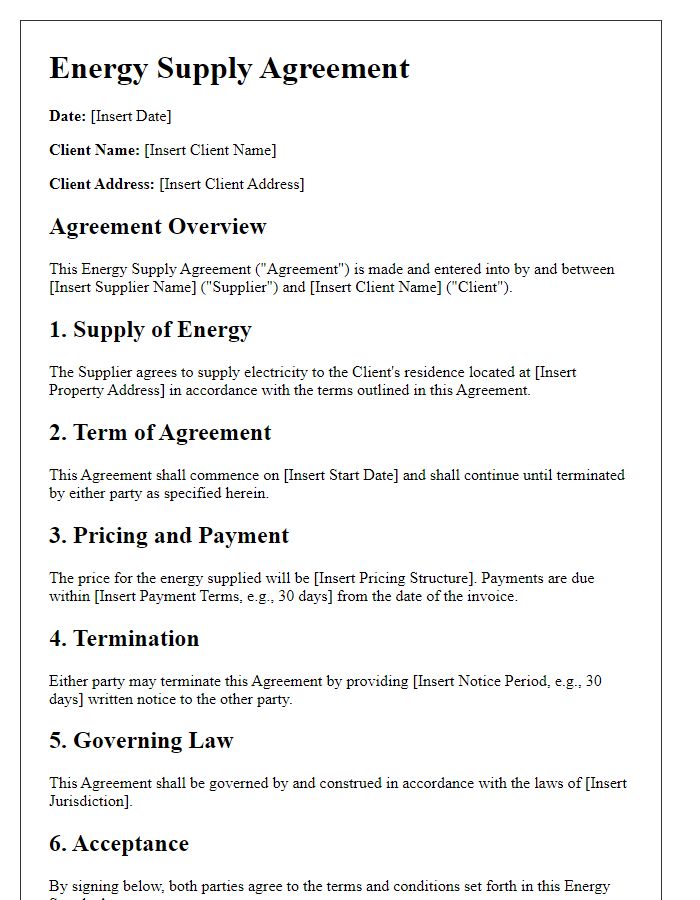
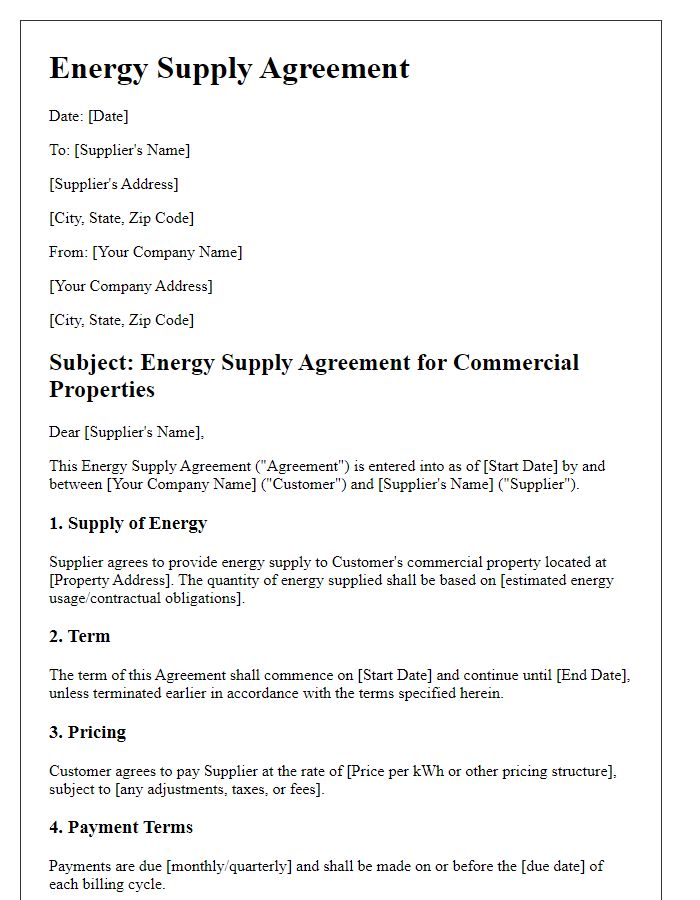
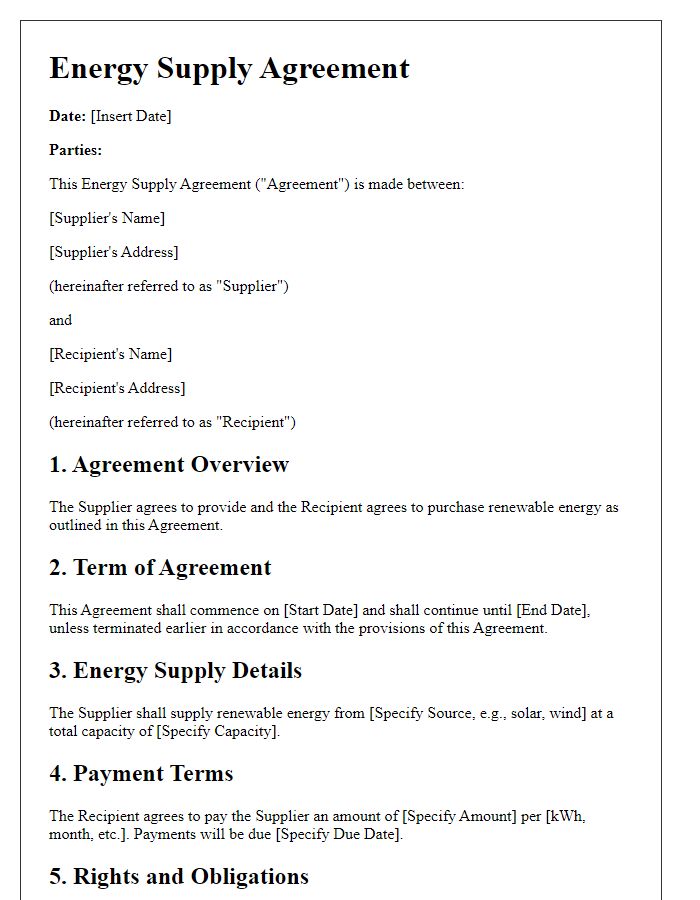
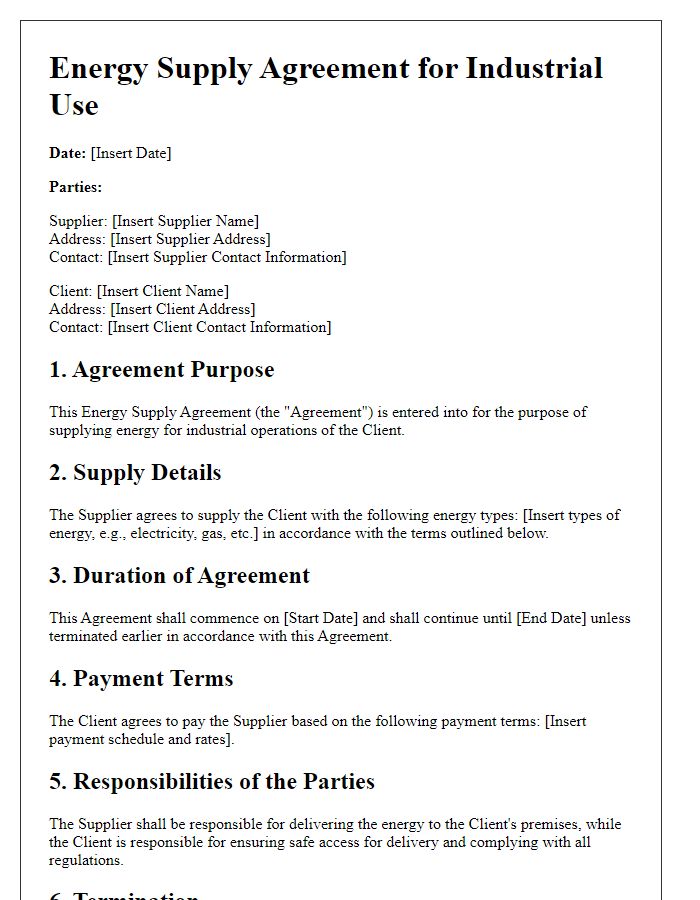
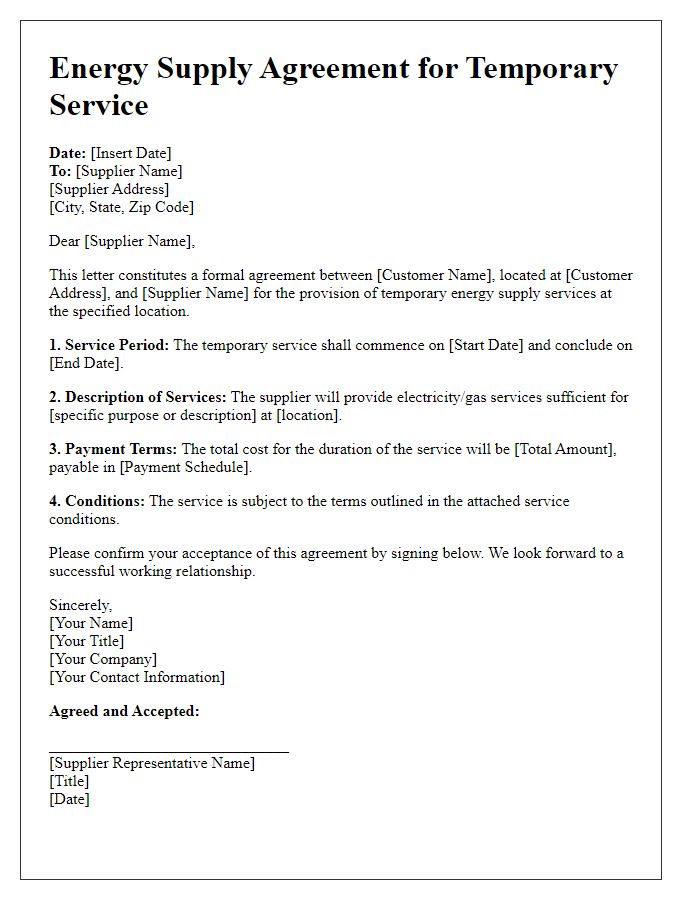
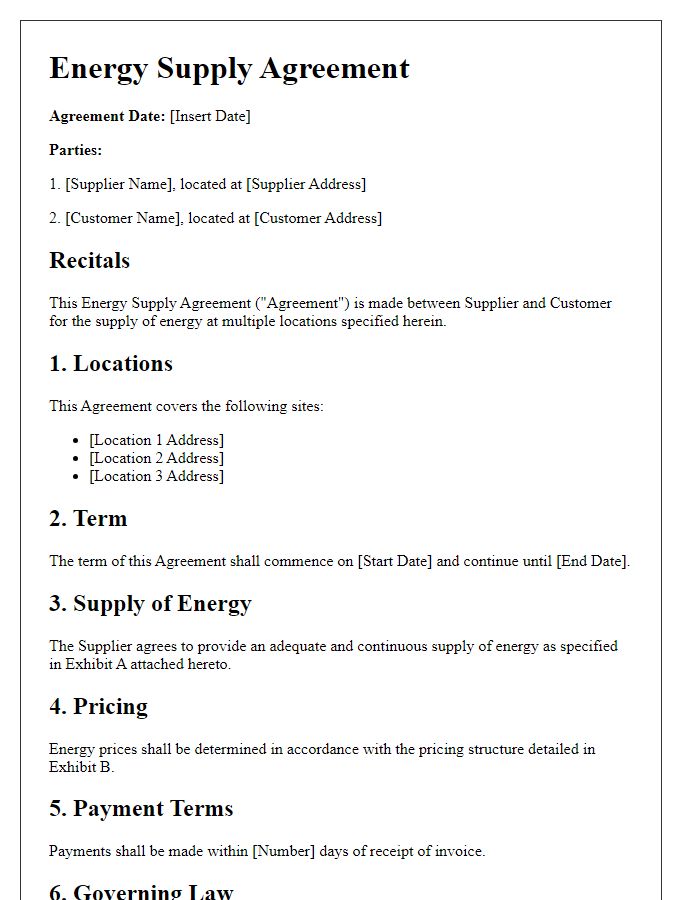
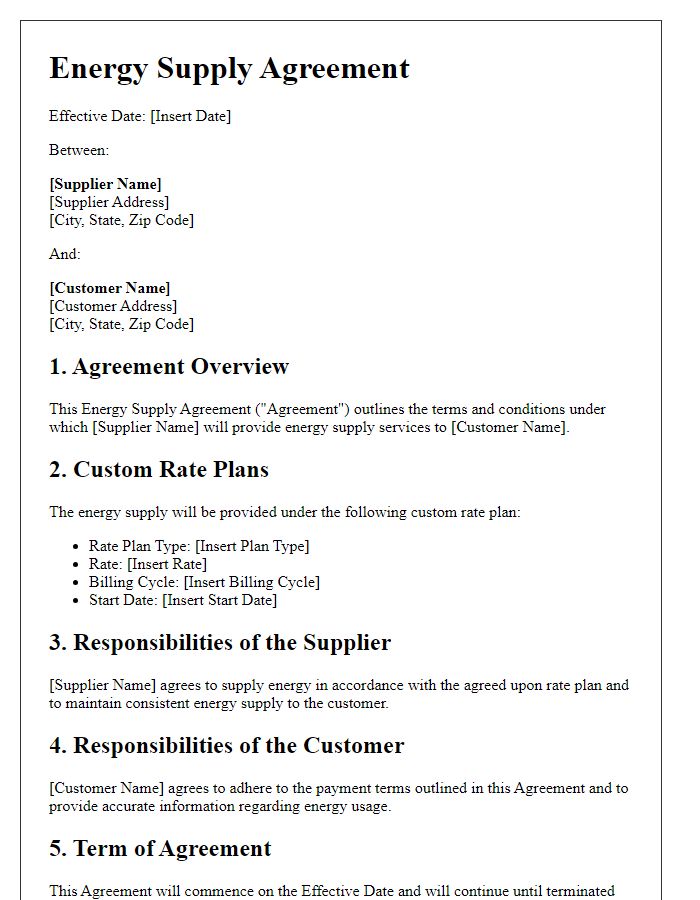
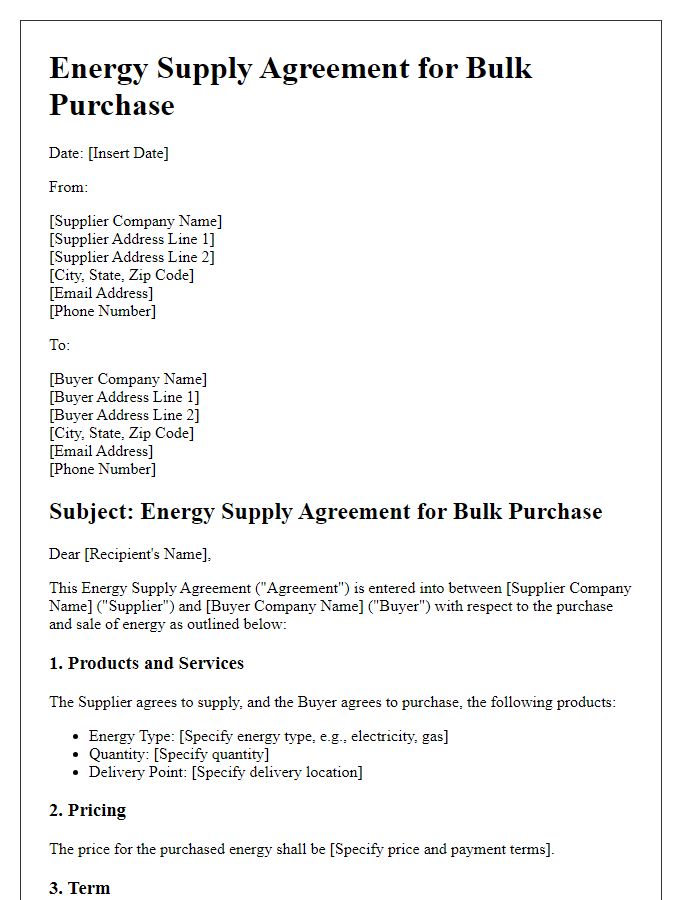
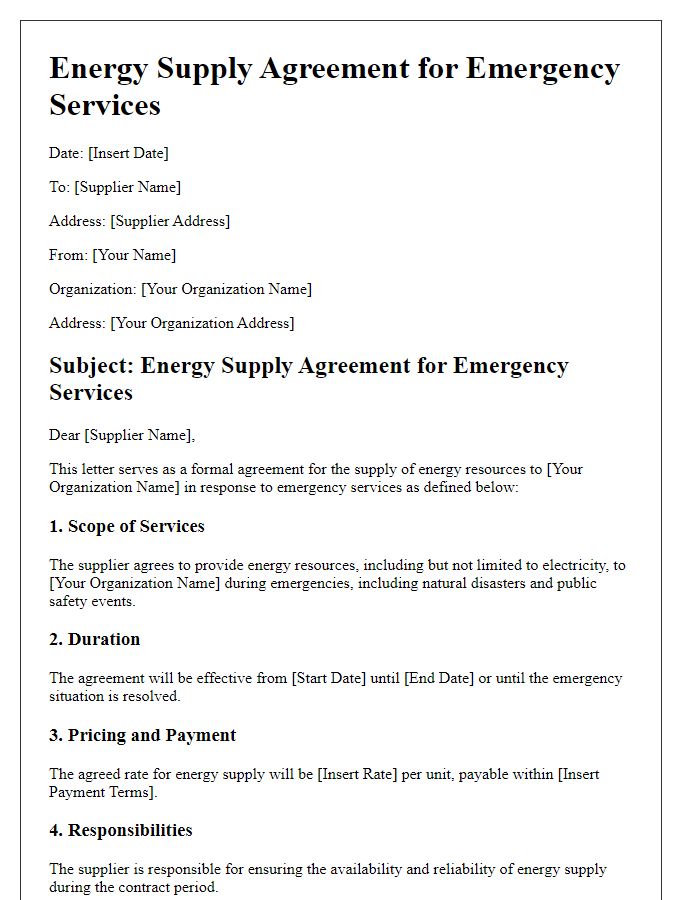
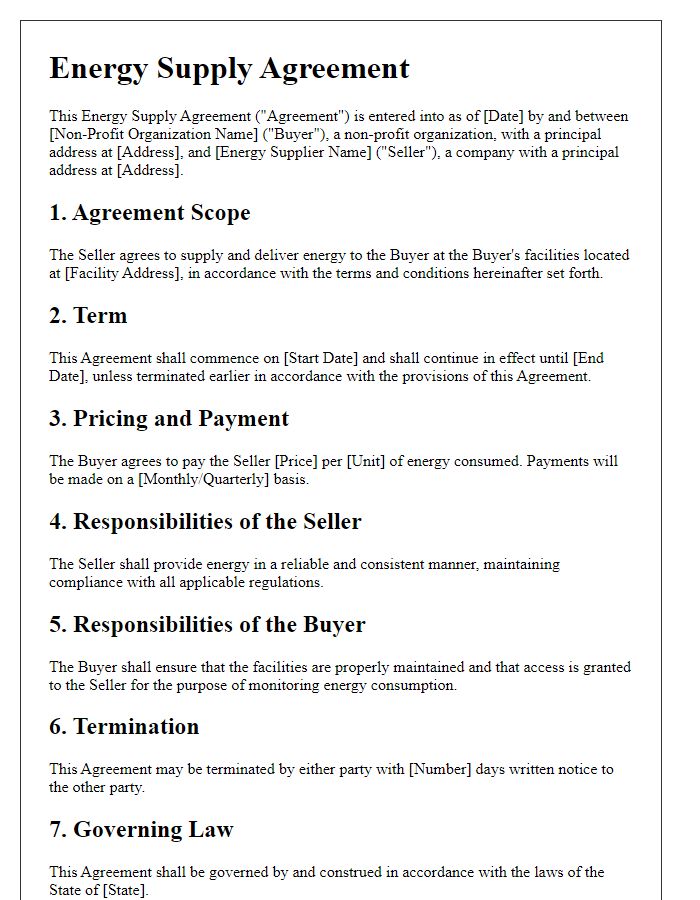


Comments